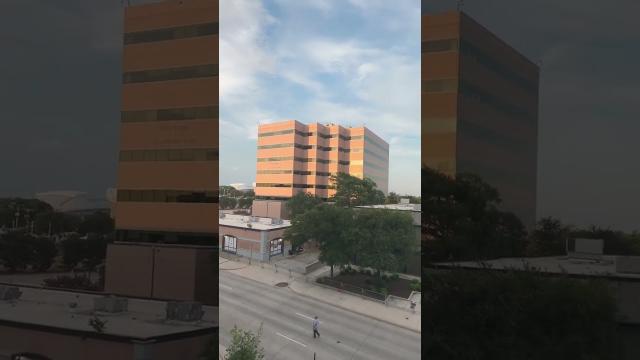Outer Space & Universe
Outer Space & Universe
Space, also known as outer space, is the near-vacuum between celestial bodies. It is where everything (all of the planets, stars, galaxies and other objects) is found.
On Earth, space begins at the Kármán line (100 km above sea level). This is where Earth's atmosphere is said to stop and outer space begins. This is not a firm boundary but is a convention used by scientists and diplomats.
Items in space are free to move back and forth; up and down; and left and right. These three dimensions are what make 3D space. Items also move forward through time, which is sometimes called the fourth dimension.
The majority of space contains very little matter and so most of it is a vacuum. Scientists do not know how big space is but we do know that space is extremely big, and is always expanding.
According to the big bang theory, all matter and energy in the Universe was compressed into a very small space. Then it exploded and started expanding. Space is still growing in size today; this means the distance from one galaxy to distant galaxies is getting longer.
Gravity is the force that keeps the Moon in orbit around the Earth and the planets in orbit around the Sun. Gravity can stretch and bend space similar to how a heavy ball placed on a stretched sheet of rubber will cause the rubber to stretch. The scientist who discovered that space can bend is named Albert Einstein. How gravity bends space is part of his theory of general relativity.
Astronauts, Cosmonauts, Taikonauts and Spationauts
An astronaut is any person who is trained by NASA to travel and perform tasks in space. Although the space traveler may not necessarily be a United States citizen, each astronaut does go through a rigorous training regiment by the National Aeronautics and Space Administration. Other space travelers go by other names then astronaut depending on their country of origin.
In the United States, astronaut is derived from the Greek words ástron (star) and nautis (sailor). While, in Russia, a space traveler goes by the name космонавт (English: cosmonaut), which is derived from the Greek words kosmos (universe) and nautis (sailor). Westerners call a space traveler from China a taikonaut, based on the 1998 writings of Chiew Lee Yik and Chen Lan where the term tàikōng (great emptiness), Chinese for “space”. In China, the term yuháng yuán (universe navigator) is used for space traveler.
Only the United States of America (United States), Russia (earlier, the Union of Soviet Socialist Republics), and the People’s Republic of China (China) have sent manned spacecraft into space. Other countries have assisted these countries by sending their own space travelers on space missions. For instance, a French space traveler is called a spationaut (from the French word spationaute), which is derived from the Latin spatium (space) and Greek nautis (sailor). (plural in Greek nautes = sailors)
-
07:47
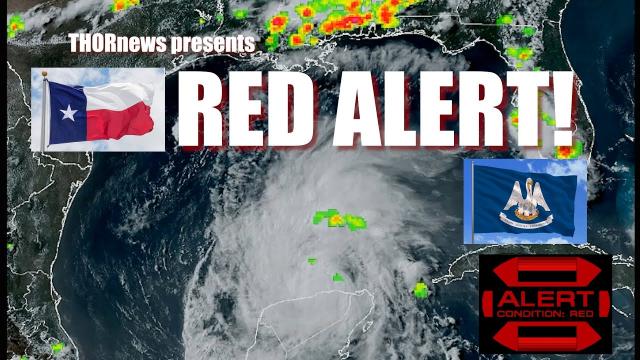
RED ALERT! Texas Coast on Hurricane Watch for Beryl! Wisconsin evacuation from possible Dam Collapse
Added 103 Views / 0 LikesCrazy days indeed, y'all.Stay aware, & stay cool.God bless everyone,T
-
20:57
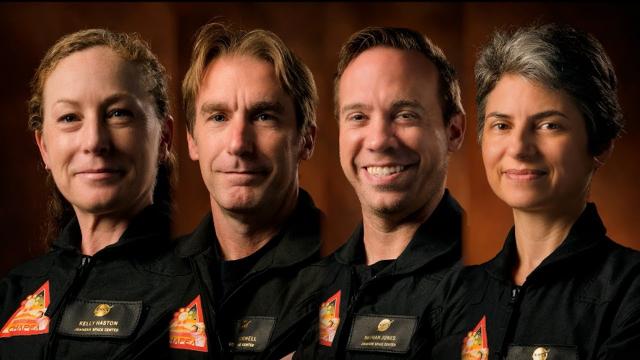
CHAPEA Mission 1 Egress Event
Added 103 Views / 0 LikesThe four volunteers who have been living and working inside NASA’s first simulated yearlong Mars habitat mission egress their ground-based home on Saturday, July 6.The first Crew Health and Performance Exploration Analog (CHAPEA) mission began in the 3D p
-
01:06
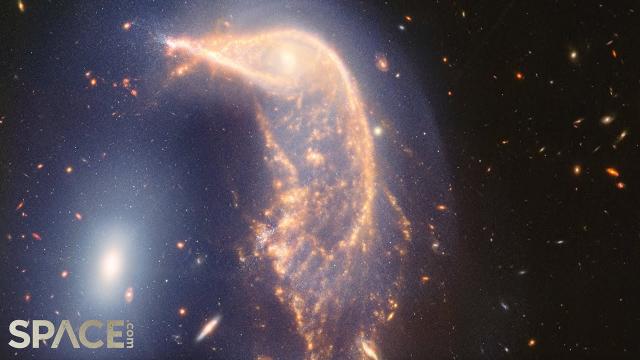
James Webb Space Telescope spies interacting galaxies in amazing 2nd anniversary image
Added 103 Views / 0 LikesThe James Webb Space Telescope has captured an amazing view of interacting galaxies Arp 142. Arp 142 consists of a distorted spiral galaxy known as “the Penguin” and a compact elliptical galaxy called “the Egg."Credit: Space.com | NASA, ESA, CSA, STScI, N
-
01:26

Satellites, auroras, and a meteor seen in amazing time-lapse from space
Added 103 Views / 0 LikesNASA astronaut Matthew Dominick shared this amazing time-lapse captured from the International Space Station. Credit: Space.com | footage courtesy: NASA / Matthew Dominick | edited by [Steve Spaleta](https://x.com/stevespaleta) Music: Falling Clouds by Tr
-
09:03
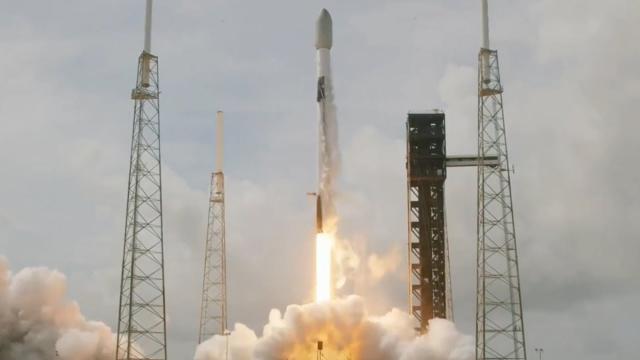
Blastoff! SpaceX launches 21 Starlink satellites from Pad 40 in Florida, nails landing
Added 103 Views / 0 LikesA SpaceX Falcon 9 rocket launched 21 Starlink satellites from Space Launch Complex 40 at Cape Canaveral Space Force Station in Florida on Sept. 5, 2024. The booster landed on SpaceX's drone ship Just Read The Instructions in the Atlantic Ocean about 8.5 m
-
10:53
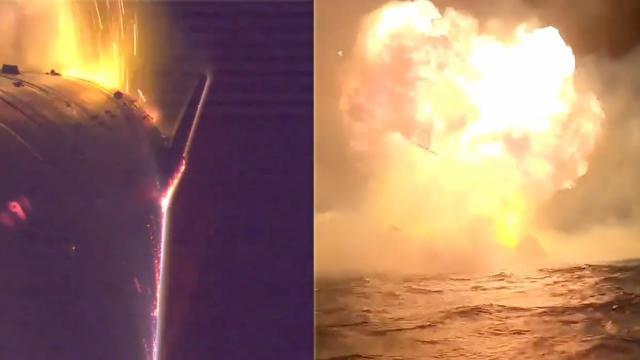
Boom! SpaceX Starship successfully re-enters atmosphere, splashes down and explodes
Added 103 Views / 0 LikesThe 5th test flight of Starship was a success! Watch the last few minutes of Earth re-entry and splashdown in the Indian Ocean. A SpaceX buoy captured the ship explode after splashdown. Credit: SpaceX
-
00:30
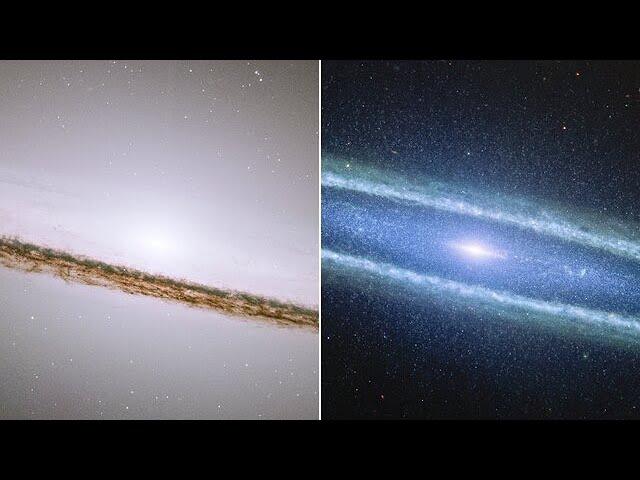
Transition video: Hubble and Webb’s views of the Sombrero Galaxy
Added 103 Views / 0 LikesThis video features two views of the Sombrero Galaxy, also known as Messier 104 (M104). The Sombrero galaxy is around 30 million light-years from Earth in the constellation Virgo.The famous Sombrero Galaxy in mid-infrared light as seen by the James Webb S
-
01:34
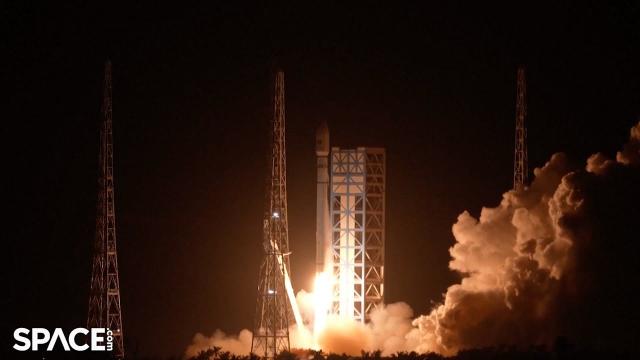
China launches Long March 12 rocket on maiden flight with experimental satellites
Added 103 Views / 0 LikesChina's Long March 12 rocket launched for the first time ever from the Hainan Commercial Spacecraft Launch Site on Nov. 30, 2024. See footage of the launch, engine tests, an animation and more!Credit: Space.com | footage courtesy: China Central Television
-
00:30

Pan: NGC 5530
Added 103 Views / 0 LikesThe subject of today’s NASA/ESA Hubble Space Telescope Picture of the Week is the stunning spiral galaxy NGC 5530. NGC 5530 is situated 40 million light-years away in the constellation Lupus (The Wolf). This galaxy is classified as a ‘flocculent’ spiral,
-
01:04
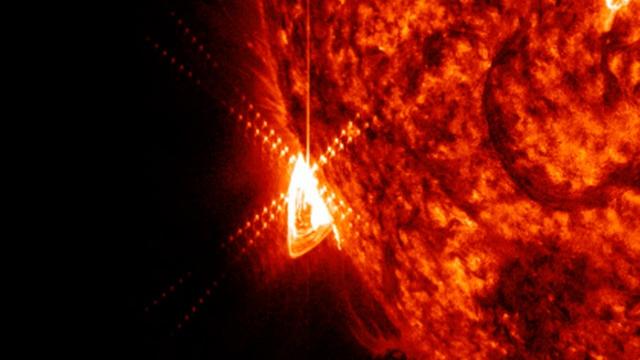
Big eruption seen at 'edge of Sun,' possible x-flare!
Added 102 Views / 0 LikesNASA's Solar Dynamics Observatory captured an M9.6-class flare on May 16, 2023. The sunspot it was generated from was on the farside of the sun as seen by the spacecraft. It is possible that it was a more powerful x-flare that is being "partially eclipsed
-
02:55
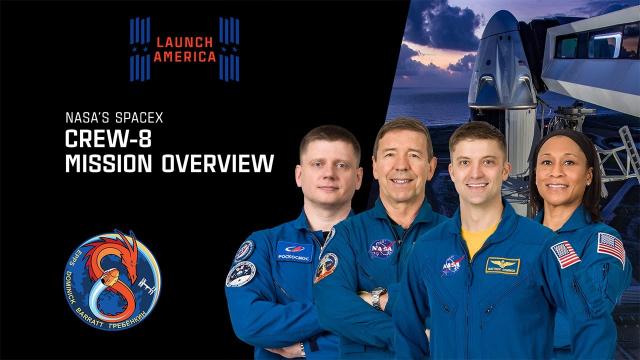
NASA’s SpaceX Crew-8 Mission Overview
Added 102 Views / 0 LikesNASA’s SpaceX Crew-8 mission will carry NASA astronauts Matthew Dominick, Michael Barratt, Jeanette Epps, and Alexander Grebenkin of Roscosmos to the International Space Station. A SpaceX Falcon 9 rocket and Dragon spacecraft will launch from Launch Compl
-
03:04

NASA's Europa Clipper is carry 'inspirational messages' to the Jovian moon
Added 102 Views / 0 LikesNASA's Europa Clipper will be carrying engraved inspirational messages, a "silicon microchip stenciled with more than 2.6 million names," and more. Credit: NASA/JPL-Caltech
-
07:39
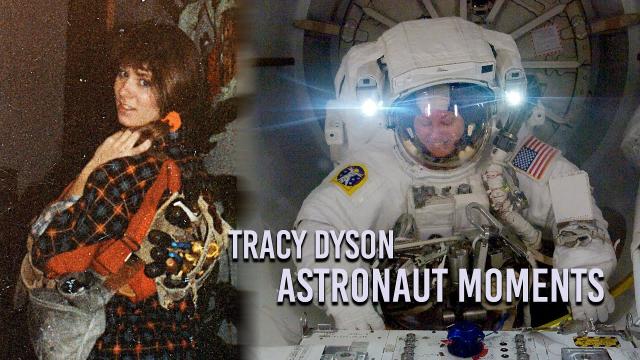
Astronaut Moments: Tracy Dyson
Added 102 Views / 0 LikesA veteran of two spaceflights, NASA astronaut Tracy Dyson is prepared for her third mission to the International Space Station aboard the Soyuz MS-25 spacecraft, launching from Kazakhstan on March 21. This mission as an Expedition 70 and 71 flight enginee
-
01:49
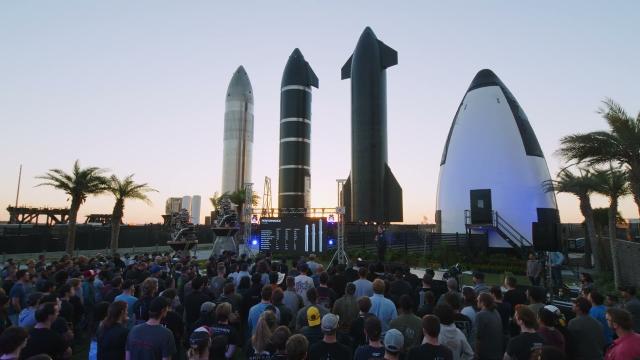
To Make Life Multiplanetary
Added 102 Views / 0 LikesThe goal of SpaceX is to build the technologies necessary to make life multiplanetary. This is the first time in the 4-billion-year history of Earth that it’s possible to realize that goal and protect the light of consciousness.At Starbase on Thursday, Ap
-
01:10
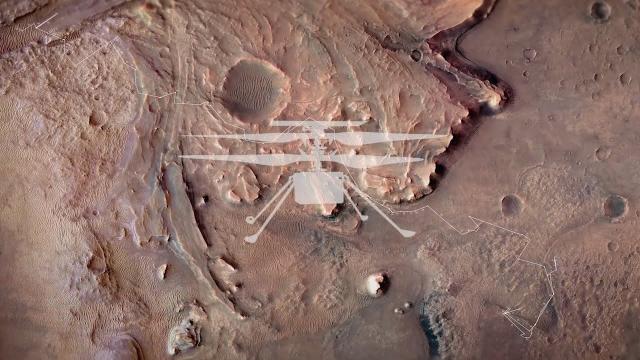
See Mars helicopter Ingenuity's 10.5 mile Jezero Crater trek in animated map
Added 102 Views / 0 LikesSee where NASA Mars helicopter flew during its 10.5 mile (16.7 km) Jezero Crater trek. Credit: NASA/JPL-Caltech
-
03:37
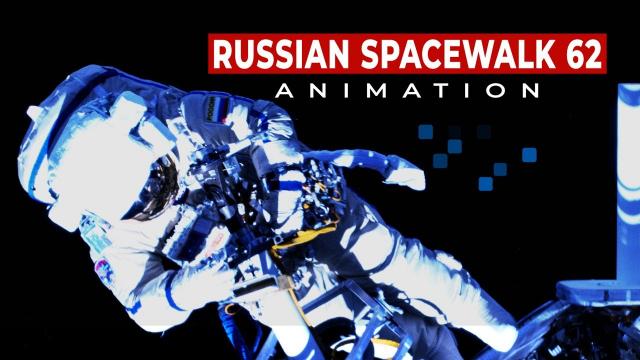
Roscosmos spacewalk to be conducted outside Space Station
Added 102 Views / 0 LikesThis animation discusses the upcoming spacewalk in which Roscosmos cosmonauts Oleg Kononenko and Nikolai Chub of the Expedition 71 crew will egress the Poisk airlock to complete the deployment of one panel on a synthetic radar system on the Nauka module a
-
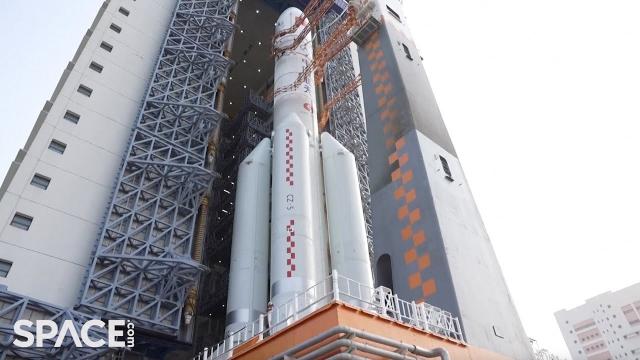
Watch live! China launches Chang'e-6 moon sample-return mission
Added 102 Views / 0 LikesThe Chang'e-6 mission will test moon “retrograde orbit tech, take-off and ascent technologies, and automatic sample-return on the far side of the moon," according to China Central Television. The Long March-5 Y8 rocket carrying the probe is scheduled to l
-
06:19
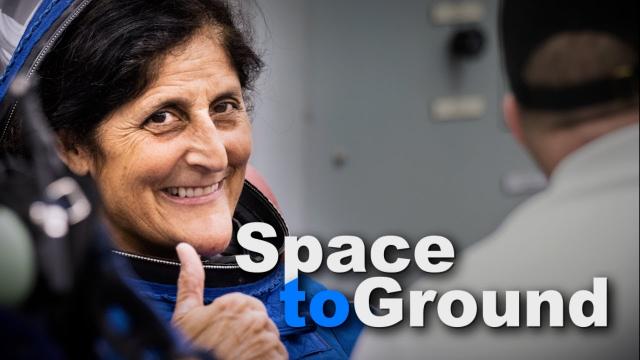
Space to Ground: Prior to Launch: May 03, 2024
Added 102 Views / 0 LikesNASA's Space to Ground is your weekly update on what's happening aboard the International Space Station. Got a question or comment? Use #AskNASA to talk to us.Learn more about the important research being operated on Station:https://www.nasa.gov/iss-scien

